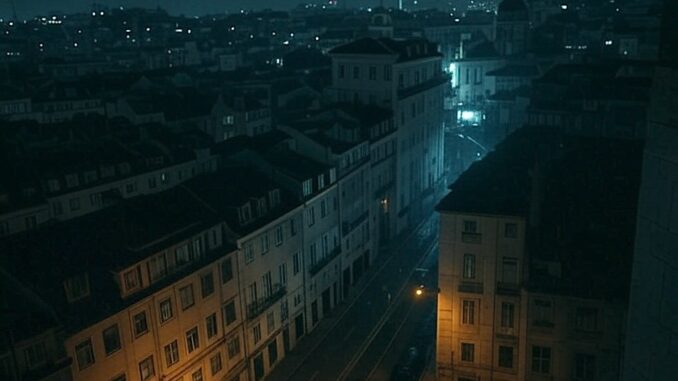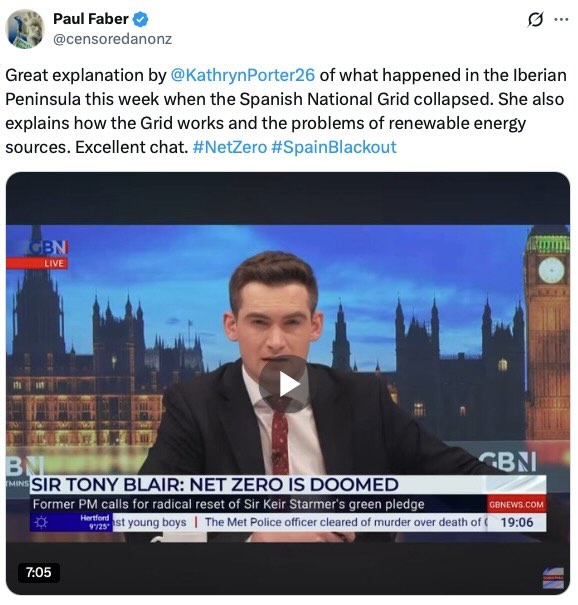
Spain’s blackout exposed the danger of unstable renewables—yet the government is blaming everything but its own green energy agenda.
Renewable energy had nothing to do with Spain’s catastrophic blackouts, its Prime Minister says, insisting instead that the real culprit was a rare technical failure unrelated to the country’s green energy transition. [emphasis, links added]
Prime Minister Pedro Sánchez went further and reiterated his government’s opposition to nuclear energy, which he called “far from being a solution.”
But, as I pointed out on Monday, the underlying cause of the blackout was the lack of “inertia,” the physical buffer provided by traditional power plants that use heavy spinning machinery to stabilize the grid during sudden fluctuations.
Our electrical systems are based on power plants that rotate massive metal shafts at thousands of revolutions per minute, creating electricity while also providing momentum.
That rotational mass acts like a shock absorber, automatically resisting sharp swings in supply and demand. When a fault or sudden drop hits the system, that inertia buys precious seconds for control systems to respond and for operators to isolate the problem.
In contrast, solar panels and most modern wind turbines rely on inverters, which lack physical mass and can’t cushion these shocks.
It’s true that the electrical grid managers have not identified a specific cause that triggered the blackout, and both Spain’s Red Eléctrica and Portugal’s REN have cautioned that a full root-cause analysis may take weeks.
On the day of the blackout, nearly 80 percent of Spain’s electricity came from inverter-based solar and wind sources…
Preliminary reports describe a “very strong oscillation” in the network and suggest the event began with an unexpected disturbance, possibly linked to a sudden drop in generation or an equipment fault.
But that doesn’t change the fact that the Spanish grid lacks inertia, and that if it had had more inertia in the system, the blackout could have been avoided or at least contained.
Inertia is not a theoretical nicety, it’s a physical property provided by heavy spinning generators like those in gas, coal, and nuclear plants, which naturally resist sudden changes in frequency.
On the day of the blackout, nearly 80 percent of Spain’s electricity came from inverter-based solar and wind sources, which provide no such stabilizing force.

With so few conventional plants online, the grid had virtually no buffer to absorb even a minor shock. When the disturbance hit, the frequency plunged, and the system unraveled within seconds.
Unlike older grids built around rotating mass, Spain’s modern, ultra-light grid simply had no way to withstand the sudden imbalance.
And Spain’s electrical grid operator admitted on a conference call yesterday that it was a “massive” loss of renewable energy generation that triggered the blackout and said that it was “very likely” the initial disturbance came from solar.
Read rest at Public
We give you energy news and help invest in energy projects too, click here to learn more






